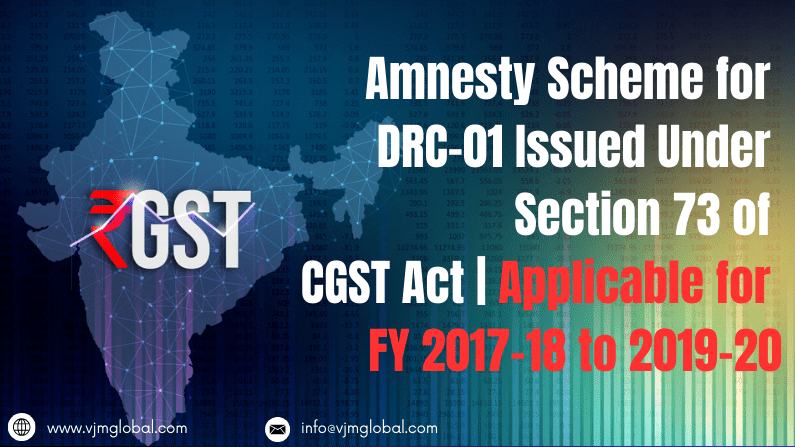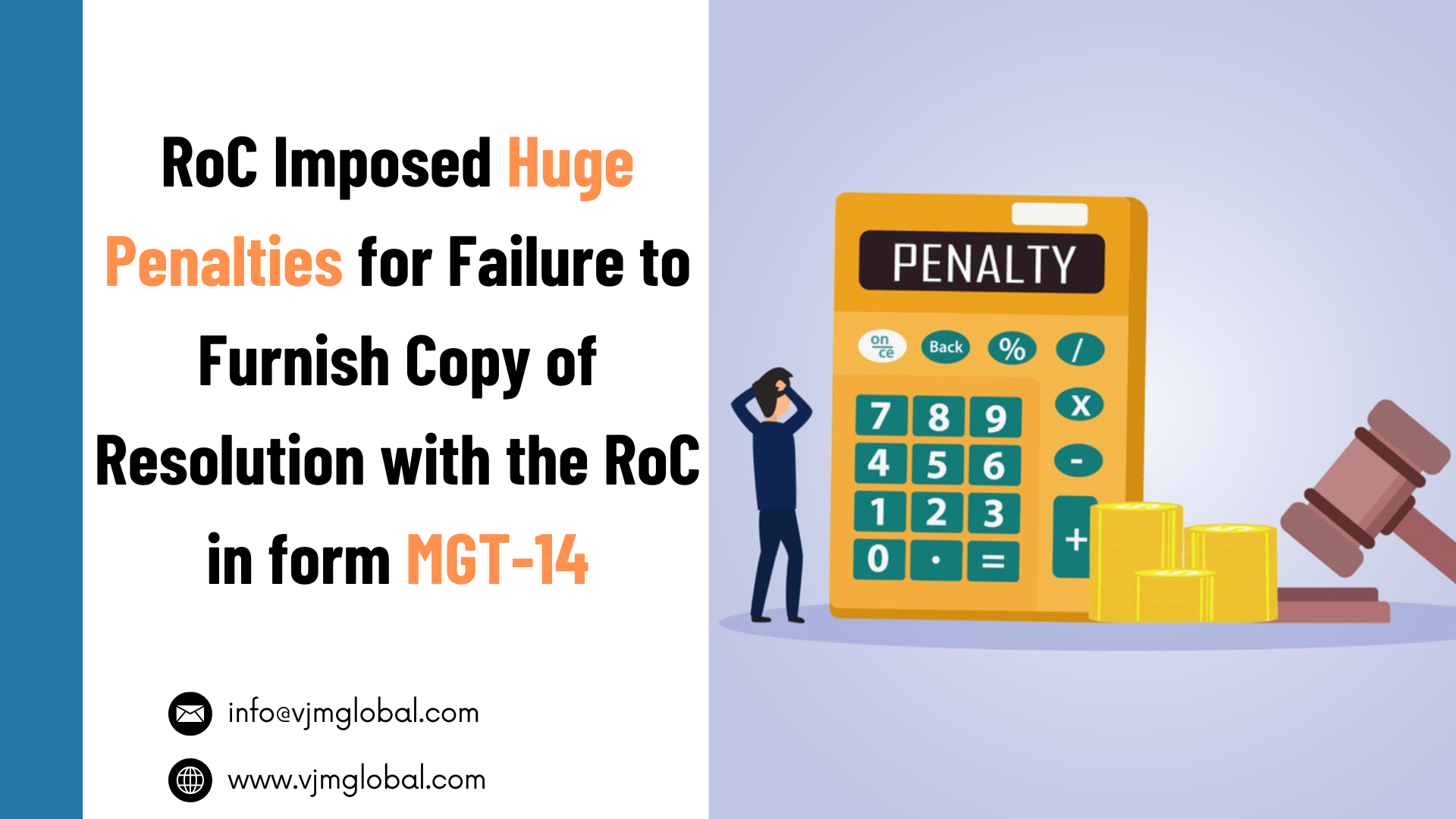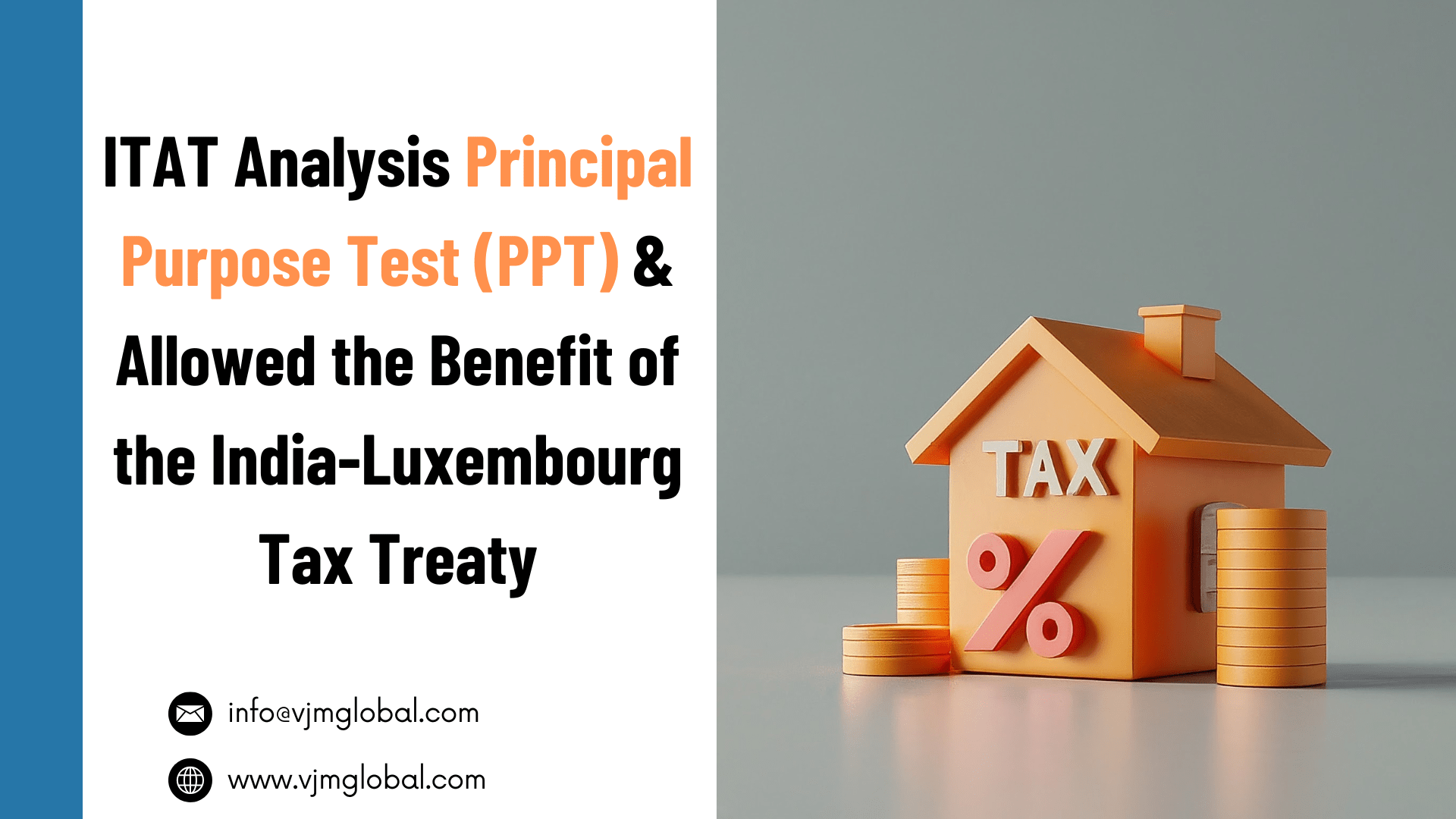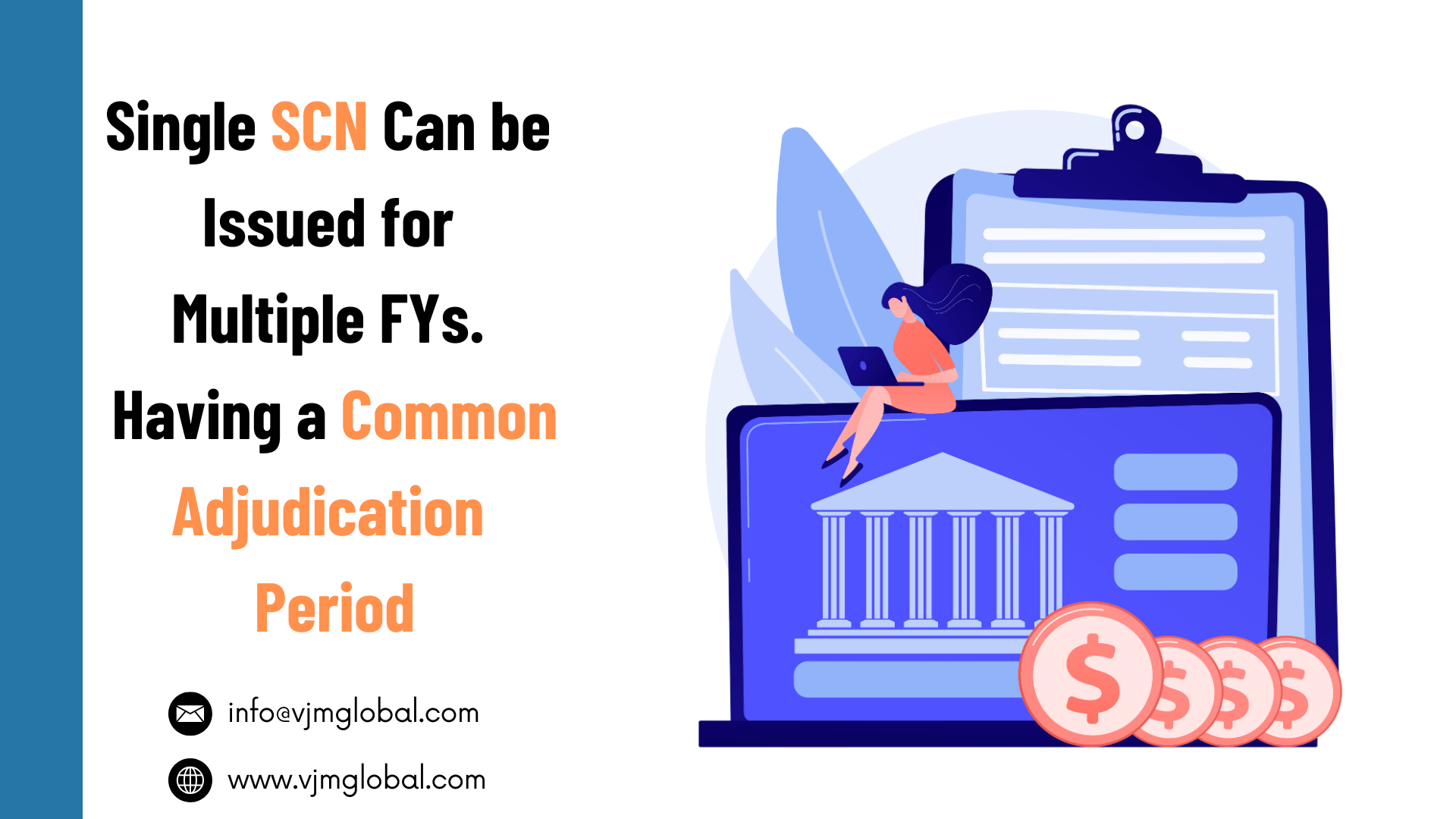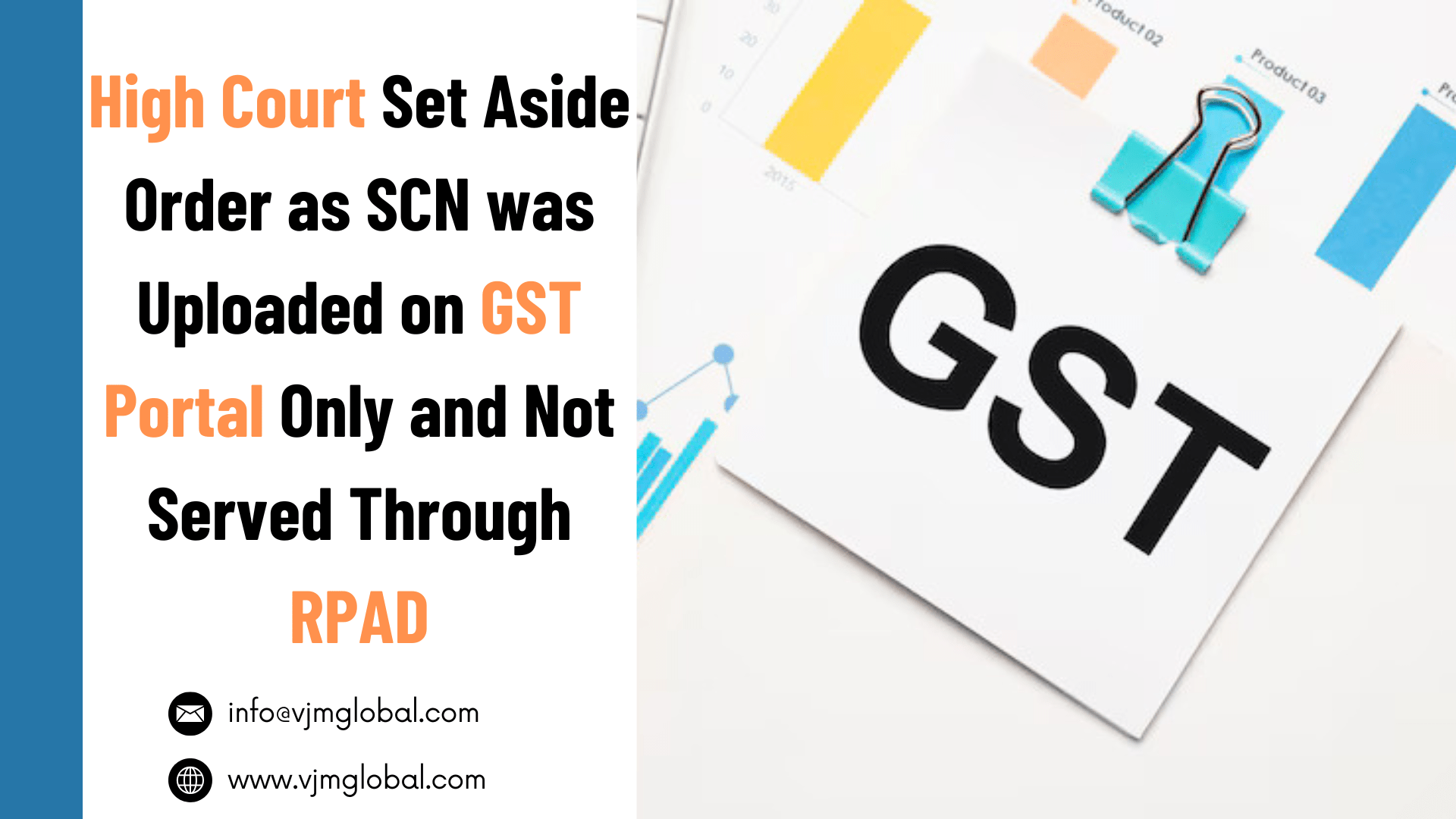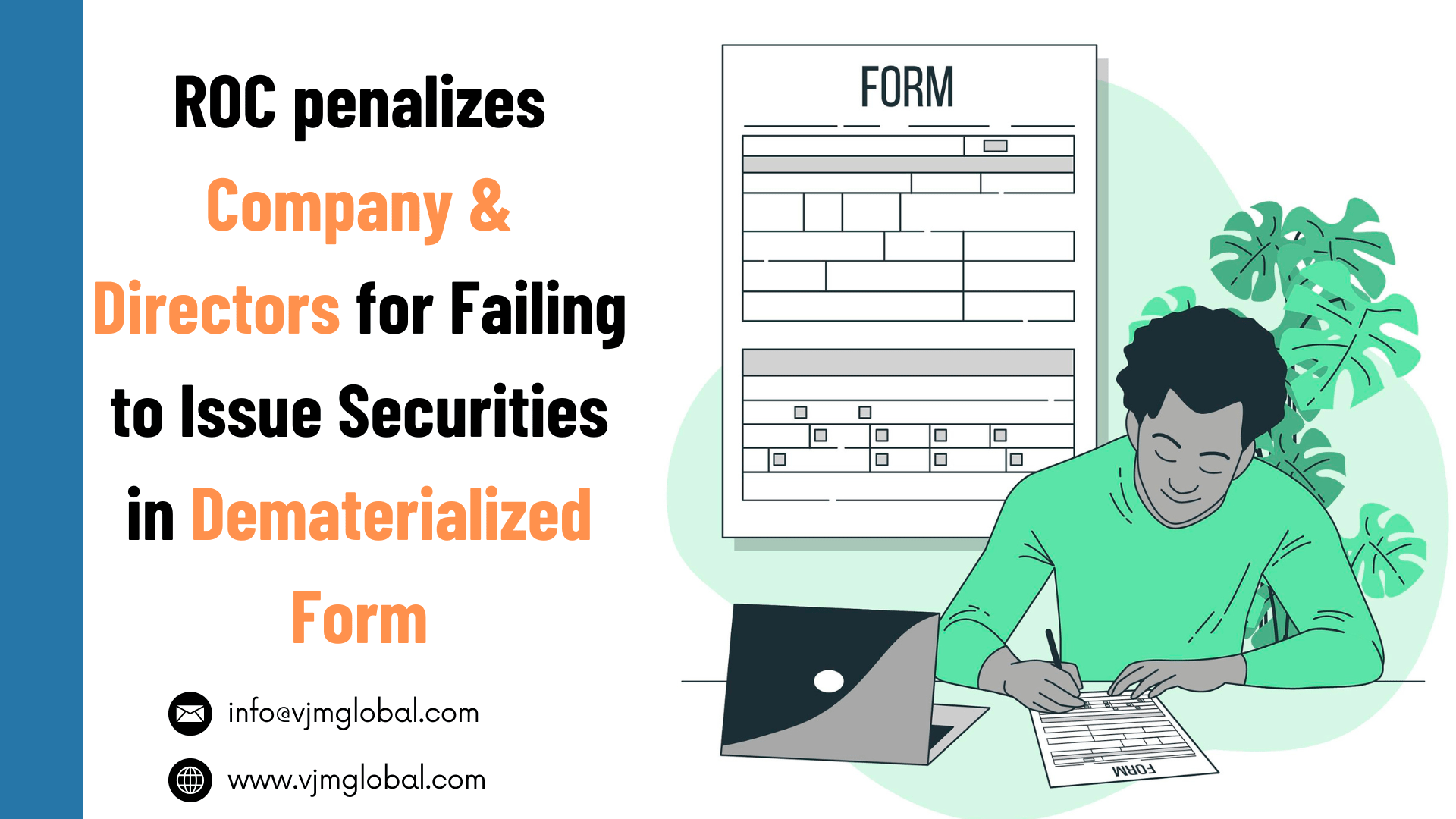It has been 7 years since the introduction of Goods and Service Tax and limitations under Section 73 have commenced from September 2023 onwards for FY 2017-18. In the initial year, a Show Cause Notice in Form GST DRC-01 was issued on various grounds such as Difference in Tax liability declared in GSTR-1 and GSTR-3B, Difference in ITC Claimed, ITC liable for reversal concerning exempted supplies, and many others.
In many cases, matters are decided against the taxpayers and they are liable to make payment of the tax amount involved along with interest and Liability. Taxpayers are struggling with demand notices and orders issued in some genuine errors as well. Understanding the difficulties faced by the taxpayer in the initial year of implementation of GST, The GST Council has recommended introducing the Amnesty scheme to deal with DRC-01 of FY 2017-18, 2018-19, and 2019-20 in the 53rd GST Council meeting.
In line with the recommendations of the GST Council, the Union Budget, 2024 has proposed to introduce Section 128A in Central Goods and Service Tax Act, 2017.
Herein a comprehensive discussion is carried out about the Amnesty Scheme proposed to be introduced through Section 128A in the CGST Act, 2017
1. Recommendation of GST Council (in 53rd GST Council Meeting)
- Considering the difficulties faced by the taxpayers during the initial years of implementation, the GST Council recommended waiving interest and penalty for demand notices issued under Section 73 of the CGST Act.
- Such benefit is available for fiscal years 2017-18, 2018-19, and 2019-20 in cases where the taxpayer pays the full amount of tax demanded up to 31.03.2025.
- The Amnesty scheme shall not apply to erroneous refunds.
2. Who is eligible to claim benefits of the Amnesty Scheme
As per Section 128A of the CGST Act, the benefit of Section 128A shall be available where the tax is payable following:
- Show Cause Notice (DRC-01), issued under Section 73(1) of CGST Act or Statement (issued along with DRC-01), issued under Section 73(3) of CGST Act; however, the final order is not yet passed in Form GST DRC-01
- Order issued in Form DRC-07 but no order is issued by the Appellate Authority (Under section 107(11) of CGST Act or Revisional Authority (Section 108(1) of CGST Act)
- The Appellate Authority or Revisional Authority issues order but the Appellate Tribunal issues no order under Section 113(1) of CGST Act.
Therefore, the following cases shall be eligible for amnesty scheme:
- Notice is issued in form DRC-01 but the matter is pending for final order;
- The final order is issued in Form GST DRC-07 but no order is issued by the Appellate Authority or Revisional Authority;
- The final order is issued by the Appellate Authority or Revisional Authority but no order is issued to the Appellate Tribunal.
Accordingly, both finalized and pending proceedings are eligible for benefit under section 128A but no final order must have been issued by the Appellate Tribunal.
Read Also: Place of supply for Transportation Service
3. When a taxpayer is eligible to claim the benefit under Section 128A?
- As per Section 128(1) of CGST Act, where there is any amount of tax is payable as per the statement or order and the taxpayer pays the full amount of tax payable by 31st March 2025 then:
- No interest under section 50 and penalty shall be payable, and
- all the proceedings concerning such notice order or statement shall be deemed to be concluded.
- The benefit under Section 128A is available only concerning FY 2017-18, 2018-19, and 2019-20
- The benefit under section 128A shall be available subject to the fulfillment of conditions, as may be prescribed.
- Where the taxpayer has already made payment of interest or penalty then no refund shall be granted of such amount.
4. Treatment of Notice issued under Section 74 but later considered as notice issued under Section 73
As per first proviso to Section 128A of CGST Act, where a notice is issued under section 74(1), i.e., in the case of fraud or misrepresentation of facts or willful misstatement and Appellate authority held that such notice should be considered as notice issued under section 73(1), i.e., other than fraud or misrepresentation of facts of wilful misstatement then such notice shall also be eligible for the benefit of Section 128A.
5. Cases not eligible for benefit under Section 128A
Provisions of Section 128A shall not apply in the following cases:
- Where the final order has been issued by the Appellate tribunal;
- Cases for the Financial year 2020-21 onwards
- Where the taxpayer has already made payment of interest or penalty. In such case, no refund shall be granted of such interest and penalty
- The amount payable on account of erroneous refund (Section 128A(2))
- Where an appeal or writ petition filed by the taxpayer is pending before Appellate Authority or Appellate Tribunal or a court, as the case may be, and the same has not been withdrawn by the said person on or before the date notified under sub-section (1).
6. Cases where Department appeal is filed
As per proviso to section128(1), where the department’s appeal is filed against the order issued in Form DRC-07 or order issued by the Appellate Authority or Revisional authority under the following sections:
- Section 107(3) – Department appeal to Appellate Authority;
- Section 112(3) – Department appeal to Appellate Tribunal;
- Section 117(1) – Appeal to High Court
- Section 118(1) – Appeal to Supreme Court
- Where any proceedings are initiated under section 108(1)– case invoked by the revisional authority
In such case, all proceedings shall be deemed to be concluded under section 128A subject to the condition that the taxpayer pays the additional amount of tax payable, if any, determined by the Appellate Authority or the Appellate Tribunal or the court or the Revisional Authority, as the case may be, within 3 months from the date of the said order:
7. No appeal shall be filed once proceedings are dropped under Section 128A
As per Section 128A(4) of CGST Act, where proceedings are deemed to be concluded under section 128A(1) then no appeal under be filed against the original order, against which benefit under section 128A has been claimed.
8. Gateway for further Litigation
Section 128A appears to be a sign of relief for taxpayers, however, there are still many possible issues which shall arise from litigations post applicability of Section 128A such as:
- What about the cases that demand only interest and penalty?
- As per Section 128A(1) of the CGST Act, the provision of this section shall apply to the cases where any amount of tax is payable, in such case interest and penalty shall be waived off.
- However, what about the cases where the taxpayer has paid the tax before the issuance of any notice u/s 73, and now the notice is issued only for the interest and penalty component?
- Where does show cause notice include more than one Financial Year?
- There are many cases where show cause notices are issued for more than one financial year in a single notice.
- How such cases shall be dealt with under Section 128A.
- Further, there can be scenarios when the period covered in SCN comes partially under the purview of section 128A. In such case, whether benefit of Section 128A shall be denied for complete SCN or it shall be admissible partially.
- If demand is partially acceptable to the taxpayer?
- Generally, the taxpayer agrees on certain issues mentioned in the Show cause notice and deposits the corresponding demand.
- However, what about the cases where the taxpayer partially agrees with the demand?
- As per Section 128A, the benefit of Section 128A shall be available only if the tax amount is paid in FULL.
9. Conclusion
Section 128A is indeed a relief to the taxpayer. However, there are still many open issues that need to be addressed by the Department through clarification or circulars.

